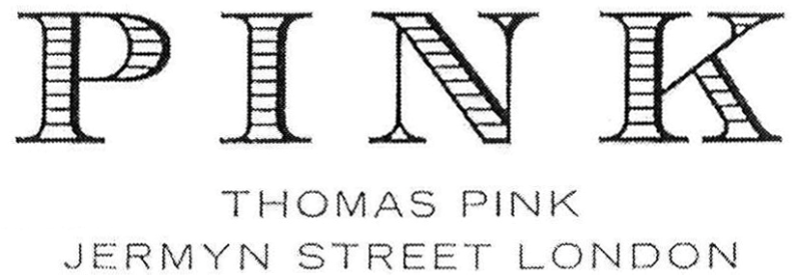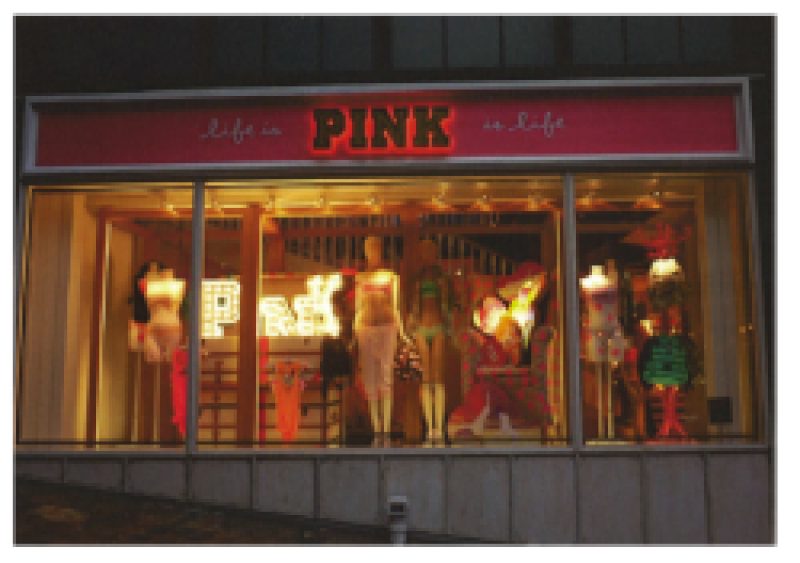
Sitting the England & Wales High Court, Mr Justice Birss agreed with Thomas Pink that there was a risk of association between the two brands. The ruling is dated July 31.
Thomas Pink has been trading since 1984. The company owns two device trade marks (one UK and one CTM) incorporating Pink (CTM mark shown right). It brought the case in May 2013.
Victoria’s Secret launched its Pink brand, aimed at college girls, in the United States in 2004. It opened its first UK store in 2012 and has also opened stores using the Pink name (left).

Birss rejected arguments that the trade marks were descriptive, and found that “given the very extensive use of the CTM over a lengthy period and given all the other evidence of distinctiveness such as the evidence of the claimant’s staff witnesses” the UK mark had acquired distinctive character.
However, he did slightly narrow the specification for some of the goods and services covered.
Finding that Victoria’s Secret’s use of Pink was detrimental to the distinctive character and repute of Thomas Pink’s mark, the judge said that the American stores has a “sexy, mass market appeal” and an association between the two brands “is bound to cause a change in the economic behaviour” of Thomas Pink’s customers: “The claimant’s trade mark will be associated with a mass market offering, reducing its luxurious reputation. There is every risk that this will lead consumers not to buy products from the claimant when they otherwise would have done.”
The IP trial was also notable for being the first in the UK where both parties were represented by female lead counsel.
Thomas Pink was represented by barristers Charlotte May QC and Jaani Riordan and by law firm Bristows. Emma Himsworth QC and Philip Roberts, with law firm Mishcon de Reya, acted for Victoria’s Secret.
Victoria’s Secret can appeal the decision to the Court of Appeal.
The two parties have also been involved in litigation in Canada and the United States.









